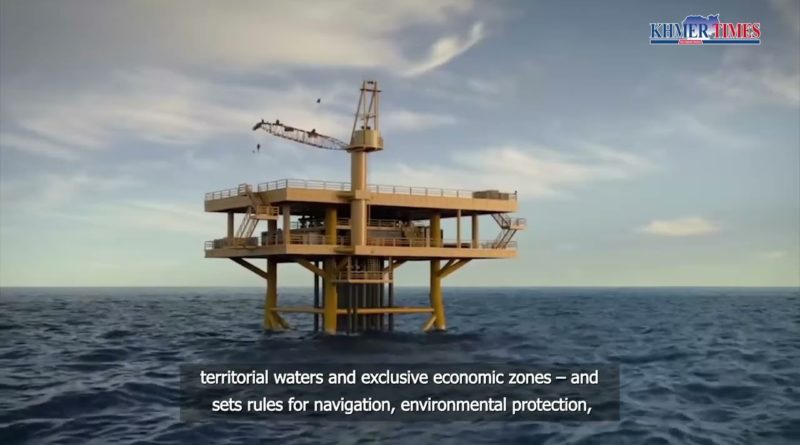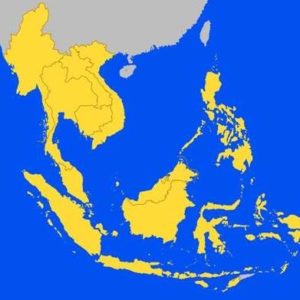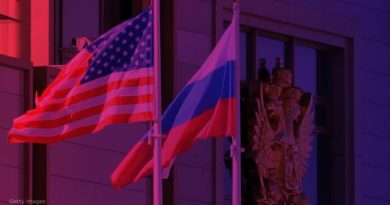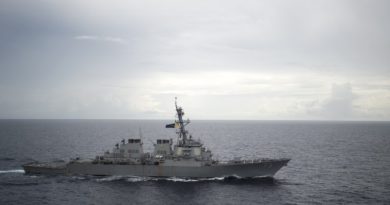ASEANEWS-ASIA GEOPOLITICS | PHNOM PENH: Experts urge Cambodia to ratify UNCLOS for maritime protection
.
.
WATCH VIDEO: https://www.youtube.com/watch?v=l66pmug4Q4c
Experts urge Cambodia to ratify UNCLOS for maritime protection
At a public lecture in Phnom Penh, Cambodia was urged to ratify the United Nations Convention on the Law of the Sea (UNCLOS) to better safeguard its maritime boundaries and resources, including fisheries, oil and gas. Although Cambodia has been a signatory to UNCLOS since 1983, it has yet to ratify the convention.
.
|
|
The recommendation was raised during a public lecture on “The Roles of International Law in Promoting Peaceful Dispute Settlement in the Indo-Pacific,” held at Sunway Hotel Phnom Penh on Wednesday. The event gathered around 50 participants, including government officials, diplomats, think tank representatives, and researchers.
In an interview with Khmer Times following the lecture, Pou Sothirak, Senior Advisor to the Cambodian Centre for Regional Studies (CCRS), emphasised the legal benefits of UNCLOS ratification.
“What kind of safeguard mechanism (exists)? If you are a member of UNCLOS, you can count on UNCLOS to protect your own national interest,” he said. “I think Cambodia now, we signed on to UNCLOS, but we have not yet ratified UNCLOS to my knowledge.”
Cambodia is already a party to the four 1958 Geneva Conventions on the Law of the Sea and the 1970 Optional Protocol concerning the Compulsory Settlement of Disputes. However, its legislative bodies have yet to ratify the 1982 UNCLOS, which came into force in 1994 for states that have ratified or acceded to it.
|
|
“This is an issue. If we ratify UNCLOS, we can also protect what is in the sea that belongs to Cambodia,” Sothirak said. “We have a very long coastline, and according to international law, the 200 nautical miles extend from the land and include maritime resources – Cambodia can have rightful ownership to these maritime bounties, including fisheries and what’s underneath, which could be oil and gas.”
Cambodia’s coastline stretches 435 kilometres along the Gulf of Thailand, covering the provinces of Koh Kong, Kampot, Kep, and Preah Sihanouk, with maritime borders shared with Thailand and Vietnam.
|
|
UNCLOS is the primary international treaty governing maritime rights and responsibilities. It defines maritime zones – including territorial waters and exclusive economic zones – and sets rules for navigation, environmental protection, scientific research, and the exploitation of marine resources.
Sothirak noted that smaller states like Cambodia must support and adhere to international law, as it offers protection in sovereignty claims, border disputes, and maritime rights.
“International law will safeguard – at least help Cambodia amplify – its claims. If you are a member of a convention, any international law convention or treaty, Cambodia can rely on such law to protect its national interests. We also need to strengthen our participation in international discussions, particularly at the United Nations,” he said.
Professor Shotaro Hamamoto of Kyoto University agreed with this sentiment, stressing the advantages of UNCLOS membership.
“If you participate as a member, as a state party to UNCLOS, then you can make use of a wide variety of opportunities, such as a conference of parties, which examines the implementation of the convention, and if you really wish to settle a dispute through legal, judicial means,” he said.
|
|
Beyond national interests, Sothirak also highlighted the need for ASEAN to strengthen its dispute settlement mechanisms, particularly when dealing with extra-regional powers such as those involved in the South China Sea issue. He asserted that ASEAN must reinforce its centrality to remain effective in regional diplomacy.
“ASEAN centrality is about leadership, it’s about unity, it’s about one voice behind very clear decisions on the rules-based order. You have to be very clear on the issues, because otherwise, ASEAN’s relevance – ASEAN centrality – is in doubt. And once it’s in doubt, all ASEAN frameworks will also be weakened,” he said, further emphasising that ASEAN must assert its own strategic autonomy.
.
|
|
.
.




 Memento Maxima Digital Marketing
Memento Maxima Digital Marketing






